European Campaign for Parity Democracy and Active European Citizenship: No Modern European Democracy without Gender Equality!
Action to address the gender imbalance in participation in the European Parliament elections, and in political decision-making generally, have not been strong enough despite existing political commitments. There is no binding provision for the equal representation of women and men in the EU and no uniform system to ensure parity for the European Parliament, where national electoral laws apply. At the national level, five EU Member States have legal quotas/a parity system and in about 16 EU countries some political parties have voluntary quotas. The under representation of women in decision-making represents a serious challenge in terms of the democratic functioning of all EU countries and of the European Union.
For this reason Mediterranean Institute of Gender Studies is coordinating a new programme entitled “European Campaign For Parity Democracy and Active European Citizenship: No Modern European Democracy without Gender Equality”. This project is led in partnership with the European Women’s Lobby (EWL) and its European wide 50/50 campaign and the Women Employment Information Centre (Lithuania), the Forum 50% (Czech Republic) and the Romanian Women’s Lobby (Romania). The project is funded by the European Commission Fundamental Rights and Citizenship 2012 programme.
The overall aim of the project is to promote active democratic citizenship and parity democracy in Europe. The specific aim is to promote the active participation of women as voters and candidates in the European Parliament elections of 2014 as well as increase the number of women among those elected.
The project’s specific objectives include:
- Promote greater awareness and mobilize support of all relevant stakeholders, including political parties, decision-makers and the public at large, for the equal representation of women and men in political decision-making.
- Create forums for the exchange of information, good practices, and lessons learned for the promotion of women in political decision-making involving all stakeholders on a national and EU level.
- Develop and strengthen the capacity of women’s organizations and NGOs to mobilize support and advocate for parity democracy; Encourage voters, particularly women, to be involved European politics and in particular in the European elections 2014.
- Evaluate the political parties’ commitment to gender equality in view of the European Parliament elections 2014.
The project’s activities are the following:
- Develop and implement a European-wide Campaign for Parity Democracy and Active European Citizenship in light of the European Parliament elections 2014 which will include the development of information and communications tools and material.
- Organization of launching events of the Campaign at national and EU level to launch the Campaign for Parity Democracy and Active European Citizenship.
- Develop and strengthen the informal cross-party coalition of women members of the European Parliament promoted by the European Women’s Lobby.
- The organisation of national consultations with stakeholders that have been identified as key in facilitating the promotion of women in political decision-making including women’s organisations and NGOs, political parties and policy makers, youth organisations, and the media.
- The development of a national and EU strategies to promote parity democracy and active European citizenship based on the results of the consultations.
- Develop, publish and widely disseminate a lobbying kit for women’s organizations and NGOs on parity democracy and active European citizenship.
- Conduct, publish and widely disseminate the results of a gender audit of the political programmes and electoral lists for the European elections from a gender equality perspective.
- Organization of a European Conference on Parity Democracy and Active European Citizenship in Brussels immediately following the European Parliament elections 2014 in order to evaluate and take stock of the outcome of the elections from a gender perspective.
